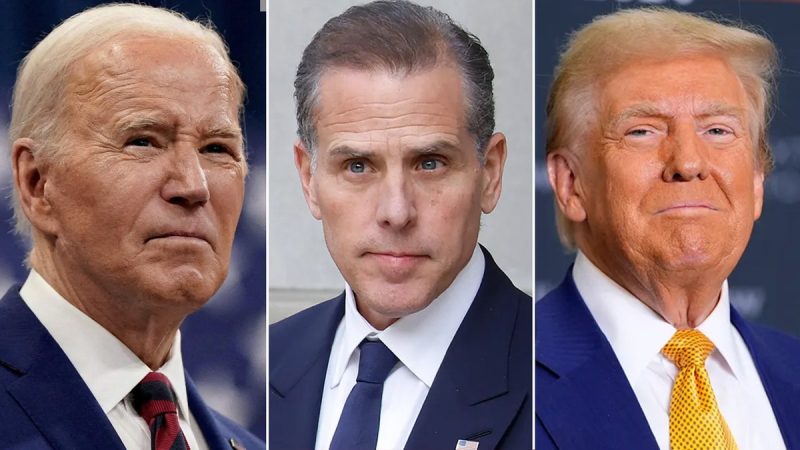In response to President Joe Biden’s controversial pardon of Hunter Biden, former President Donald Trump recently raised concerns over the treatment of January 6th detainees. Trump’s question about the status of the J-6 hostages only adds fuel to the fiery debate surrounding the events of January 6th and the subsequent legal proceedings.
The comparison drawn by Trump between Hunter Biden’s pardon and the situation of the January 6th detainees is intriguing and provocative. By addressing the issue of the J-6 hostages in relation to Biden’s action, Trump is implying a potential double standard in the treatment of individuals linked to different political affiliations. This tactic likely serves to rally his base and draw attention to what he perceives as unfair treatment.
The term J-6 hostages itself carries a strong connotation, invoking the idea that those involved in the January 6th events are being held unfairly or unjustly. This framing of the situation as a hostage scenario further intensifies the emotional response and highlights the perceived significance of the individuals detained in connection to the Capitol riot.
The timing of Trump’s question is also notable, coming at a time when discussions about the events of January 6th are still highly charged and politically divisive. By inserting himself into this ongoing debate, Trump manages to keep his supporters engaged and maintain a presence in the public discourse.
On the other hand, critics argue that Trump’s focus on the J-6 hostages is a deliberate deflection from the serious nature of the events that occurred on January 6th. By shifting attention to the detainees’ treatment, Trump may be attempting to redirect the narrative away from the actions of his supporters that day and the implications for democratic norms and institutions.
Overall, Trump’s query about the J-6 hostages in response to Biden’s pardon of Hunter Biden underscores the deeply entrenched political divisions in the United States. The use of charged language and contrasting situations serves to highlight these divisions and incite further discord among political factions. This episode reflects the ongoing struggle for control over the narrative of January 6th and its aftermath, as well as the broader implications for the future of American democracy.
